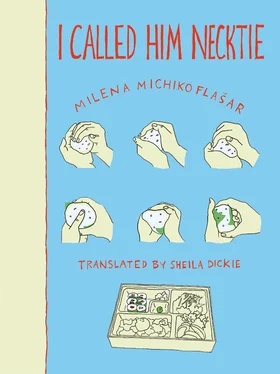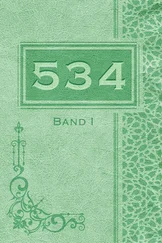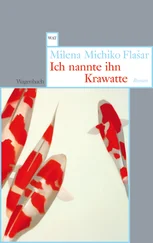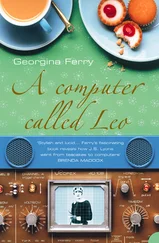Red threads.
Breathless, I stood still.
The tree was bedecked with red threads, all over. Our friendship tree, on each branch hung five threads, for each year gone by, a thread. I gasped. How had she climbed so high? How had she reached the bushy crown? Our names in the bark had grown up with it, towards the sun. How had she known I would come here? Finally I saw and understood her. And yet not quite. Someone who creates such a work of art wants to preserve a secret to the very end. The meow of the temple cat. Was it still the same one? I picked her up and let her stretch her claws. Warm blood. I am still here. Dear Yukiko. I wrote it in the bend of my arm. I would like to tell you: I love you.
72
What remained was a gap in our housing development.
Her parents’ house was cleared out shortly afterwards. From the windows of my room I could watch how the men, masks over mouths and noses, brought out all sorts of rubbish, junk and trash. Broken bicycles, in piles. Dented pans. A dumpster full of newspapers and magazines. Radios. Sofas. Mattresses. Nibbled by mice. Three boxes of lamp shades. And nails. And screws. It emerged that the Miyajimas had lived off their neighbors’ garbage for a long time. A scandal, said Mother. She was standing close behind me. What they collected! Look, our alarm clock. As if it still belonged to us. As if it were ours forever. A passing remark. In her thoughts she had already moved on. I realized there was no point in reminding her that she had thrown the clock away more than a year ago because its ring was too shrill for her. Let someone else be woken by it! With these words she’d thrown it in the trash.
A last truckload of plastic. I went out. Empty tin cans. A cracked mirror, in which my face was a grimace, an ugly contortion. I reached into one of the sacks that had been put outside the entrance and pulled out a fossil. An insect was frozen inside it. I stuck it in my pants pocket and felt its surface in there. It was cool and smooth, a pleasure to touch. From behind his mask one of the workers grumbled: That’s enough for today.
73
The house was torn down. The materials had no value, they said, and it wasn’t worth repairing. On the way to school I saw them blocking off the street and on the way home I saw an excavator knocking down the last wall. The ground shook beneath my feet. Days later there was a level surface where I had once stood and rung the bell, and a few days later a new building went up. A family moved in: Father, mother and child. Good people, they said, perhaps a bit too stylish. How does that look? Our old Nissan next to their new one. There was hardly another word about the Miyajimas. According to what was known, and not much was known, not much anyone wanted to know, they moved into the lower part of town, burdened with debt, and no one would have been surprised to catch sight of them under a blue tarpaulin in one of the parks in S. Yes, one would have liked to be able to say that someone had seen them there. It would have been a reassuring horror story. To be able to say: They have hit rock bottom. And since the horror should not be allowed to fade, people said, without really knowing: No doubt about it. Even if they are not quite there. Some day they will hit rock bottom. Only when the Fujitas one block further over turned out to have a gambling addiction and marriage problems did the talk about the Miyajimas stop.
And then?
Nothing. I mean that’s how it was, and I had to get used to it. I had my seventeenth birthday. Then my eighteenth. The pressure grew. I resisted it. Clenched my teeth and thought: This is being grownup. To get over it, whatever it was, and even when you have not recovered, to regard it as over and done with. To forget. That too. To forget over and over again. If it were not for Kumamoto I would have managed it. But he had Yukiko’s eyes. The same look: I am dissolving.
It is –
I completed the sentence for him.
— A decision.
No. He shook his head. At least it is not one you have chosen to take. I see that now. In this café. He pointed to the right and left. We are unfree, all of us. Only, that does not absolve us of responsibility. Despite our lack of freedom we constantly make decisions and we have to take responsibility for them and their consequences. And so, with every decision we take we become less free.
That thought, although it was hard, made it easy for us to move out of our chairs and on to the street. The rain had slackened and was more of a drizzle.
See you tomorrow? I asked.
Definitely.
74
You don’t see any stars in the city. Its aura is too bright, it lights up the heavens, not the other way around, and instead of Lyra, the most you see is an airplane, gliding dangerously low, away over the houses.
What had I sacrificed?
I was now no longer merely an image, I was an image hiding another within. The image of a girl. Part of the tribe. I had asked the monk not to remove the threads. He agreed without knowing my story. Quite strange. That was all he said. Now and then I came by and sat under the tree. In time the threads lost their color and fell off the branches, all but two. Quite strange, the monk said, in exactly the same tone, when the last two fell off: Life.
The bent pine is still there. I spent that night under its shelter, my collar turned up. I didn’t mind the pine needles trickling down on me. I found it comforting to be apart like that, my fingers numb, to sit outside those dark hours. My parents would be waiting for me, for the sound of my footsteps in the hall, perhaps worrying where I was, perhaps even lifting the receiver, dialing 110, suddenly feeling ashamed and replacing it. For how can you draw attention to a ghost? How can you explain that someone has disappeared, when that person is already gone? And yet that’s what I wanted, as soon as morning dawned, no more than just that: For them to search for me and find me. Grab me by the shoulders, slap me in the face and ask: How has it come to this, that we failed each other so? Take me in their arms and say: Let us begin again from the beginning.
75
From the location of the sun I could tell it was a little after eight. The clouds had dispersed overnight towards the west. Only now I realized that I had forgotten my umbrella in the café. It was proof that yesterday had happened. If I hadn’t left it there I would have wondered whether it had all been a dream. But then I knew: The dry feeling in my mouth came from talking so much, the stale smell in my hair from all the smoke. Both were connected. As I was to him. When I stood up and knocked the damp earth off my legs, I thought: And what if he were to jump in front of the train today? I was convinced he would drag me down with him, to death on the humming rails. The stripes of his tie before my eyes, I set off.
Good morning.
He overtook me.
Bad night?
I followed him. Fell into step. Every once in a while he stopped. Looked for something. Found it. Walked on, cigarette in the corner of his mouth, slower. Stopped again. Walked on. So slowly that at some point we were no longer walking, but we sauntered idly along like two people strolling through rushing crowds. I saw our shapes reflected in a shop window, beyond the rhythm of the world. After rain the light is always at its clearest. He spoke to me over his shoulder. There was the park. We reached our bench. Good to be here again. He stretched out his legs.
76
Do you believe in an afterlife?
The question came rushing out.
I mean: Yukiko. Last night when I was lying in bed, I wondered whether she would be reborn. Let’s say, in Mexico. She would be two, three years old by now. She’d be talking already. Spanish. She learns fast. As soon as you’ve told her a word she babbles it back. She has two brothers. Jorge and Fernando. You can see them playing. The two older ones make sure their sister doesn’t swallow any of her building blocks. The girl reincarnated. I mean, just imagine. Yukiko, with all the knowledge that’s already in her, could now be in a house in Puebla, in a room, in a body called Isabella, picture her, as she places one block on another, she could suddenly realize she has been here before. She knows the sun that falls through the blinds on her hands as they play. She knows her mother’s call. There’s a recognition. With this picture in my head I fell asleep. That we, reincarnated, are here to recognize something. A stunning idea. Don’t you think? You could meet her. One day. In Mexico. Or somewhere else. A chance moment in time, her sleeve touches yours and it would be a great pity to miss such a moment. An incomparable loss. And furthermore: With us it could be the same. I mean. Today on the platform, surrounded by so many people, I asked myself whether I would miss any one of them if they weren’t here, and then: Whether they would miss me if I weren’t here. Whether we are not all somehow here in order to touch one another. When the train finally came and I saw my reflection in its windows and in the sleeping faces rolling by behind them, there was no question, only an insight: We must all, every one of us, relate to one another.
Читать дальше












